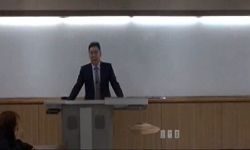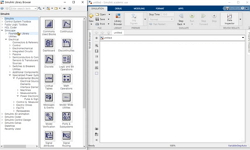목적 본 연구는 팀 기반 시뮬레이션교육에 참여한 간호대학생의 문제해결 적극성에 영향을 미치는 요인을 파악하기 위하여 수행되었다. 방법 B시 소재 D대학교 간호학과 4학년 재학생을 대...
http://chineseinput.net/에서 pinyin(병음)방식으로 중국어를 변환할 수 있습니다.
변환된 중국어를 복사하여 사용하시면 됩니다.
- 中文 을 입력하시려면 zhongwen을 입력하시고 space를누르시면됩니다.
- 北京 을 입력하시려면 beijing을 입력하시고 space를 누르시면 됩니다.

팀 기반 시뮬레이션교육에 참여한 간호대학생의 문제해결 적극성에 영향을 미치는 요인 = Factors Affecting Nursing Students’ Proactivity in Problem-Solving during Team-based Simulation
한글로보기https://www.riss.kr/link?id=A108071952
- 저자
- 발행기관
- 학술지명
- 권호사항
-
발행연도
2022
-
작성언어
-
-
주제어
간호대학생 ; 문제해결 적극성 ; 불안 ; 시뮬레이션 ; 실습몰입 ; 현실감 ; Anxiety ; Flow during simulation ; Nursing student ; Proactivity in problem-solving ; Reality
-
KDC
373
-
등재정보
KCI등재
-
자료형태
학술저널
-
수록면
71-81(11쪽)
- 제공처
-
0
상세조회 -
0
다운로드
부가정보
국문 초록 (Abstract)
목적 본 연구는 팀 기반 시뮬레이션교육에 참여한 간호대학생의 문제해결 적극성에 영향을 미치는 요인을 파악하기 위하여 수행되었다. 방법 B시 소재 D대학교 간호학과 4학년 재학생을 대상으로 부정맥환자간호시뮬레이션에 참여한 학생 중 연구참여에 동의한 86명의 학생에게 2020년 12월 1일~12월 31일까지 구글설문지를 이용하여 조사하였다. 수집된 자료는 SPSS 23.0 프로그램을 활용하였고 서술통계 및 상관관계분석, 다중회귀분석방법으로 분석하였다. 결과 대상자의 실습몰입(r=52, p<.001)과 불안(r=-.31, p=.004)이 문제해결 적극성과 통계적으로 유의한 상관관계를 나타내었다. 문제해결 적극성에 가장 큰 영향을 미치는 요인은 실습몰입(β=.46, p<.001)이었고 그 다음은 불안(β=-.21, p=.026)이었다. 문제해결 적극성에 영향을 미치는 두 요인에 의한 회귀방정식은 통계적으로 유의하였으며(F=18.84, p<.001), 회귀방정식의 설명력은 29.6%이었다. 결론 교수자는 팀 기반 시뮬레이션교육에서 간호대학생의 문제해결 적극성을 향상시키기 위하여 수업설계 시 실습몰입을 증진시키고 불안을 최소화하기 위한 방안을 모색해야 하고 추후에는 문제해결 적극성의 증가하기 위한 중재를 개발하여 문제해결역량에 대한 효과를 검증하는 연구가 필요하다.
다국어 초록 (Multilingual Abstract)
Objectives The purpose of this study was to identify the affecting proactivity in problem-solving of nursing students who participated in the team-based simulation. Methods Participants were 86 senior nursing students at one University in B city. Data...
Objectives The purpose of this study was to identify the affecting proactivity in problem-solving of nursing students who participated in the team-based simulation. Methods Participants were 86 senior nursing students at one University in B city. Data were collected using structured questionnaires including demographic characteristics, flow during simulation, anxiety, and proactivity of problem-solving from December 1 to December 31, 2020. Data were analyzed using descriptive statistics, t-test, ANOVA, Pearson’s correlation coefficient, and multiple regression by SPSS 25.0 program. Results The affecting factors of nursing students’ proactivity in problem-solving were flow during simulation and anxiety. The factor that had the greatest influence on proactivity in problem-solving was flow during simulation (β=.46, p<.001), followed by anxiety (β=-.21, p=.026). The regression equation was statistically significant (F=18.84, p<.001), and the power of explanation was 29.6%. Conclusions To improve the problem-solving activity of nursing students in team-based simulation, the instructor should design to increase flow during the simulation and minimize anxiety. In future studies, it is necessary to research the effect of increased proactivity in problem-solving on problem-solving competency.
목차 (Table of Contents)
- Ⅰ. 서론 Ⅱ. 연구 방법 Ⅲ. 결과 Ⅳ. 논의 및 결론 참고문헌
- Ⅰ. 서론 Ⅱ. 연구 방법 Ⅲ. 결과 Ⅳ. 논의 및 결론 참고문헌
동일학술지(권/호) 다른 논문
-
- 학습자중심교과교육학회
- 조혜진(Cho, Hyea-Jin)
- 2022
- KCI등재
-
LiFE사업 단과대학 J대학의 학습경험 학점인정제도(RPL) 사례 연구
- 학습자중심교과교육학회
- 황유진(Hwang Yoojin)
- 2022
- KCI등재
-
부모의 긍정적 양육태도가 중학생의 학업열의에 미치는 영향 : 자아존중감과 삶의 만족의 매개효과
- 학습자중심교과교육학회
- 정문경(Jeong Moonkyeong)
- 2022
- KCI등재
-
- 학습자중심교과교육학회
- 권정현(Kwon Jung-Hyun)
- 2022
- KCI등재




 스콜라
스콜라






